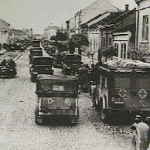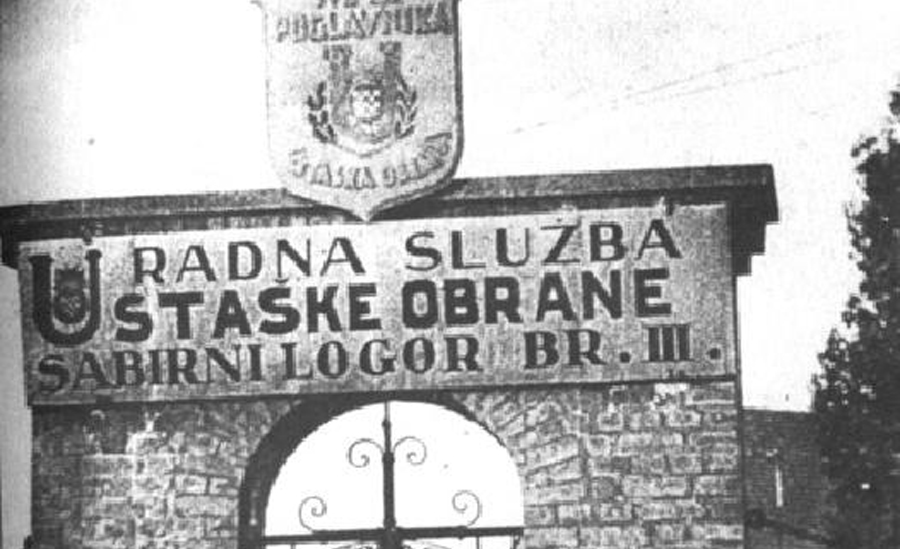Jozo Tomasevich
Jozo Tomasevich (March 16, 1908 – October 15, 1994; was a prominent Yugoslav American economist and military historian. He was professor emeritus at San Francisco State University. Born in Košarni Do on the Pelješac peninsula (today part of Orebić municipality), Tomasevich completed his secondary education in Sarajevo before moving to Switzerland to study at the University of Basel, from where he graduated with a Ph.D. in economics in 1932. After graduation he worked as financial expert at the Yugoslav National Bank in Belgrade until 1938 when he moved to the United States with a Rockefeller fellowship, “availing himself of the rich resources of Harvard University”. In the US, he first worked at the Food Research Institute of Stanford University as a member of their scholarly staff. During World War II he was also affiliated with the Board of Economic Warfare and the United Nations Relief and Rehabilitation Administration in Washington, DC. After the war he first worked at the Federal Reserve Bank in San Francisco.[6] In 1948 he joined the San Francisco State University and he taught there for twenty-five years until he retired in 1973. He also taught for a year at Columbia University around 1954. In 1974 and 1976 he received fellowships for his “Postdoctoral Research in East European Studies” from the American Council of Learned Societies. Before 1938, Tomasevich’s publications focused on the finances of the Yugoslav kingdom during the Great Depression. In the US, he first focused on the economic aspects of the international relations in the Pacific basin. He followed that with a study of the “economic problems of the Yugoslav peasantry within a larger social, political and historical framework” in his 1955 book Peasants, Politics, and Economic Change in Yugoslavia. In the late 1950s he started to work on a planned trilogy of the history of Yugoslavia during World War II. The first volume, focused on the Chetniks, appeared in 1975 and it was “basically a study in politics, ideology and military operations, although the role of the economic factor has not been overlooked”.[6] The second volume concentrated on collaboration and the quisling governments in Yugoslavia,[6] especially the Independent State of Croatia, and was published posthumously in 2001 with editing from his daughter Neda. The third volume, which covered the Yugoslav Partisans, is 75 percent complete and remains unpublished. In October 2001, the personal library of Tomasevich was donated to the Stanford University Libraries.
Jozo Tomasevich, War and revolution in Yugoslavia, 1941-1945: occupation and collaboration, Stanford University Press, 2001

This is the long-awaited second part of the author’s meticulously researched and scrupulously impartial study of the complicated and anguished history of Yugoslavia during the years of World War II. The previous volume dealt with the Chetniks, the resistance movement formed by officers of the defeated Yugoslav army who came to regard the Communist-led Partisans as their chief enemy, and who reached accords with the occupying powers—first with the Italians and then with the Germans. The present volume deals with the rule of the Axis powers in occupied Yugoslavia, along with the role of the other groups that collaborated with them—primarily the extremist Croatian nationalist organization known as the Ustashas.
The book begins by briefly describing the establishment of Yugoslavia in 1918 and its internal history during the interwar period. It then discusses the breakup of the state in April 1941, the annexation or occupation of parts of its territory by its neighbors, and the establishment by the Ustashas of the independent state of Croatia as a German-Italian quasi protectorate, focusing on its governmental policies and its problems with the Bosnian Muslims. The book also examines the role of religion during the occupation, the destruction of the Yugoslav Jewish community, and the economic exploitation of Yugoslav territory by the Axis powers. The work concludes by discussing the wartime population losses of the country and the ultimate fate of the collaborationist forces.










